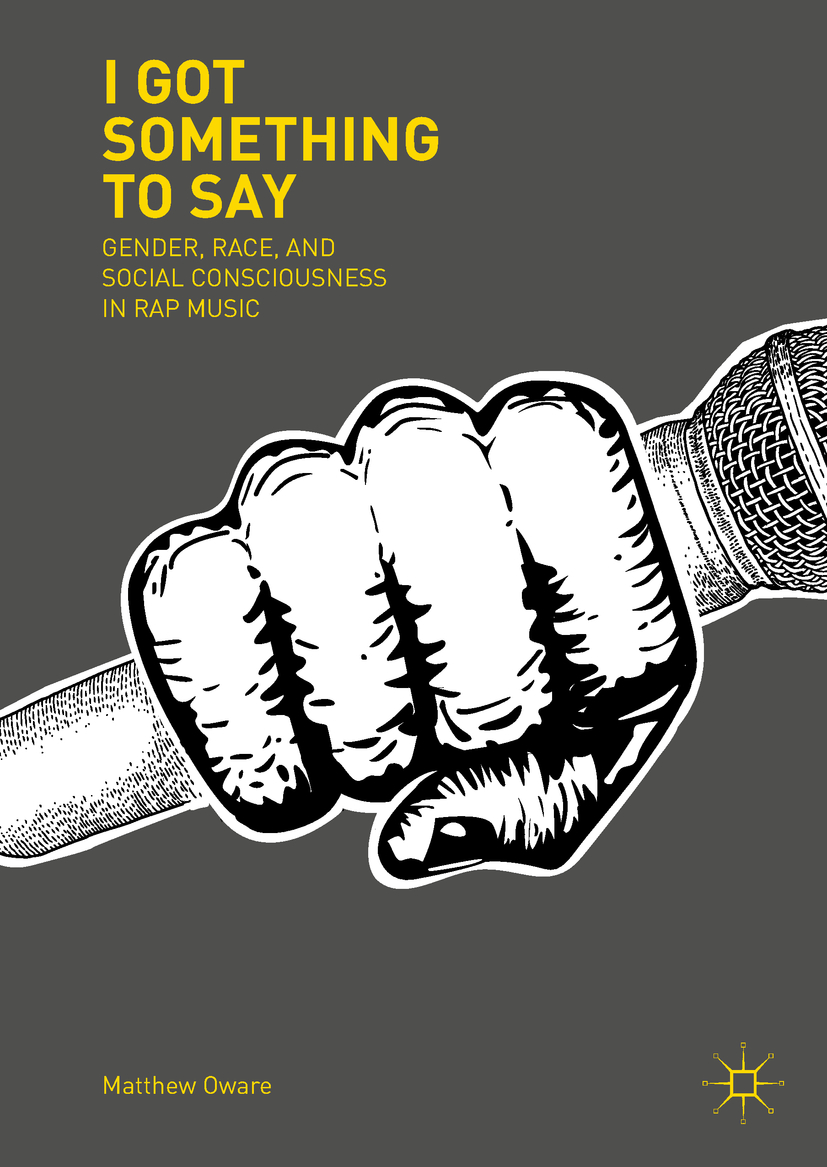Matthew Oware
Sociology, DePauw University, Greencastle, IN, USA
ISBN 978-3-319-90453-5 e-ISBN 978-3-319-90454-2
https://doi.org/10.1007/978-3-319-90454-2
Library of Congress Control Number: 2018939750
The Editor(s) (if applicable) and The Author(s) 2018
This work is subject to copyright. All rights are solely and exclusively licensed by the Publisher, whether the whole or part of the material is concerned, specifically the rights of translation, reprinting, reuse of illustrations, recitation, broadcasting, reproduction on microfilms or in any other physical way, and transmission or information storage and retrieval, electronic adaptation, computer software, or by similar or dissimilar methodology now known or hereafter developed.
The use of general descriptive names, registered names, trademarks, service marks, etc. in this publication does not imply, even in the absence of a specific statement, that such names are exempt from the relevant protective laws and regulations and therefore free for general use.
The publisher, the authors and the editors are safe to assume that the advice and information in this book are believed to be true and accurate at the date of publication. Neither the publisher nor the authors or the editors give a warranty, express or implied, with respect to the material contained herein or for any errors or omissions that may have been made. The publisher remains neutral with regard to jurisdictional claims in published maps and institutional affiliations.
Cover image: ne2pi, SynchR
This Palgrave Macmillan imprint is published by the registered company Springer International Publishing AG part of Springer Nature
The registered company address is: Gewerbestrasse 11, 6330 Cham, Switzerland
Acknowledgements
Writing a book is a tremendous undertaking, but one I did not do alone. Although my name appears on the cover, I had extensive help and guidance from a lot of people. First, I want to thank my editors at Palgrave-Macmillan, especially Mary Al-Sayed, Alexis Nelson and Kyra Saniewski. Alexis thorough editing and insightful comments on the first three chapters pushed me to clarify my arguments and clean up my writing. Mary and Kyra kindly answered every question I had, whether big or small. I thank everyone who read early chapter drafts. Having published books on hip hop culture and rap music, historian Jeffrey Ogbar and sociologists Geoff Harkness and Valerie Chepps feedback were critical to my theoretical and methodological thinking. I am both humbled and honored that they agreed to offer keen insights on my work. I thank Tiyi Morris, a former colleague at DePauw, for her observations and thoughts on my arguments addressing feminism and women rappers. In the end, all errors of logic, argumentation, and writing are my own.
I also thank my colleagues at DePauw University who read chapter drafts and offered constructive feedback: Samuel Autman, Leigh-Anne Goins, Lynn Ishikawa, and Karin Wimbley. Simply, without their input, this book would not exist. They helped me refine my arguments on black masculinity, feminism, racial evasion, and LGBTQ emcees. I am indebted to my sociology and anthropology colleagues, Angela Castaeda, Mona Bhan, Rebecca Bordt, and Alicia Suarez for their enthusiasm and support of this project. Tamara Beauboeuf also deserves recognition for her unwavering commitment to my work throughout my time at DePauw. Nancy Davis mentored me before I even arrived on campus, I would not teach at DePauw if not for her, and Rob Robinsons, generosity and kindness. A special shout-out goes to Clarissa Peterson for always having my back.
Members of the Faculty Development Committee and the Asher Fund Committee for the Social Sciences at DePauw University provided funding for this project. Thank you for granting me the resources that allowed me to carve out time to write. The funding also allowed me to hire two research assistants, Howard Robinson and Jonathan Pai. I am deeply appreciative of their assistance coding lyrics. Portions of this book were previously published as (Un)conscious (Popular) Underground: Restricted Cultural Production and Underground Rap Music, Poetics , 42, 6081; copyright 2014. This work is reprinted with permission from Elsevier ( https://doi.org/10.1016/j.poetic.2013.12.001 ). Also, I use material from We Stick Out Like a Sore Thumb: Underground White Rappers Hegemonic Masculinity and Racial Evasion, Sociology of Race and Ethnicity 2, 372386; copyright 2016; reprinted with permission from Sage Publications ( https://doi.org/10.1177/2332649215617781 ).
Last, and most importantly, I humbly and emphatically thank my wife and kids for putting up with me while writing this book. I did not attend every school event or hang out as much as I should have, but your love, caring, and support drove me to finish this project. I am eternally grateful for you all. Finally, I offer shout-outs to my parents, in-laws, brother, sisters, Krue, and my other friends! Without you all, there is no me. Thank you, one and all.
List of Tables
Table 3.1 Percentages of hegemonic and homosocial themes in male rap, 20052015 (Total=371)
Table 4.1 Percentages of themes in female rap, 20052015 (Total=173)
Table 4.2 Percentages of non-hegemonic themes in rap songs for women and men, 20052015
Table 5.1 Percentages of themes found in sample lyrics for white male rap artists, 20062015
Table 5.2 Percentages of themes found in sample lyrics for non-white male rap artists, 20062015
Table 5.3 Percentages of themes found in sample lyrics for women rap artists, 20052015

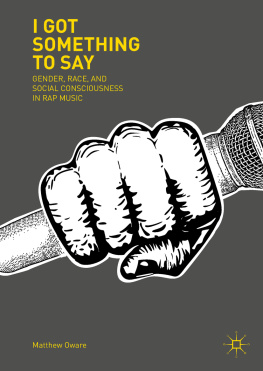
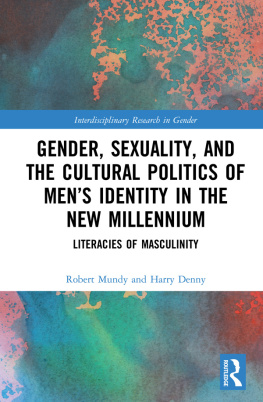
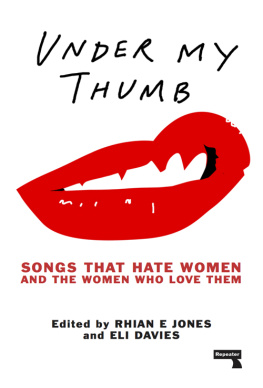



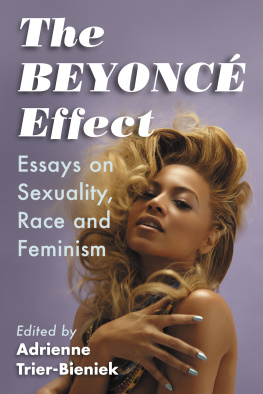

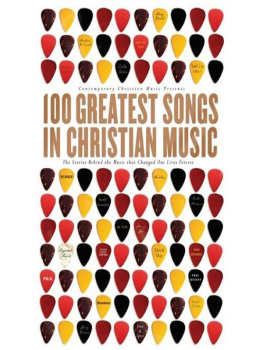
![Jay-Z [Jay-Z] - Decoded](/uploads/posts/book/45855/thumbs/jay-z-jay-z-decoded.jpg)
